Mercedes E Class vs Volvo XC90 - Differences and prices compared
Compare performance (585 HP vs 455 HP), boot space and price (50500 £ vs 69800 £ ) at a glance. Find out which car is the better choice for you – Mercedes E Class or Volvo XC90?
Costs and Efficiency:
When it comes to price and running costs, the biggest differences usually appear. This is often where you see which car fits your budget better in the long run.
Mercedes E Class has a evident advantage in terms of price – it starts at 50500 £ , while the Volvo XC90 costs 69800 £ . That’s a price difference of around 19272 £.
Fuel consumption also shows a difference: Mercedes E Class manages with 1.50 L and is therefore significantly more efficient than the Volvo XC90 with 3.50 L. The difference is about 2 L per 100 km.
As for electric range, the Mercedes E Class performs distinct better – achieving up to 116 km, about 45 km more than the Volvo XC90.
Engine and Performance:
Under the bonnet, it becomes clear which model is tuned for sportiness and which one takes the lead when you hit the accelerator.
When it comes to engine power, the Mercedes E Class has a noticeable edge – offering 585 HP compared to 455 HP. That’s roughly 130 HP more horsepower.
In acceleration from 0 to 100 km/h, the Mercedes E Class is evident quicker – completing the sprint in 4 s, while the Volvo XC90 takes 5.40 s. That’s about 1.40 s faster.
In terms of top speed, the Mercedes E Class performs evident better – reaching 250 km/h, while the Volvo XC90 tops out at 180 km/h. The difference is around 70 km/h.
There’s also a difference in torque: Mercedes E Class pulls hardly perceptible stronger with 750 Nm compared to 709 Nm. That’s about 41 Nm difference.
Space and Everyday Use:
Cabin size, boot volume and payload all play a role in everyday practicality. Here, comfort and flexibility make the difference.
Seats: Volvo XC90 offers distinct more seating capacity – 7 vs 5.
In curb weight, Mercedes E Class is somewhat lighter – 1810 kg compared to 2080 kg. The difference is around 270 kg.
In terms of boot space, the Mercedes E Class offers decisively more room – 540 L compared to 302 L. That’s a difference of about 238 L.
When it comes to payload, Volvo XC90 minimal takes the win – 710 kg compared to 640 kg. That’s a difference of about 70 kg.
Who wins the race?
The Mercedes E Class proves to be dominates this comparison and therefore becomes our DriveDuel Champion!
Mercedes E Class is the better all-rounder in this comparison.
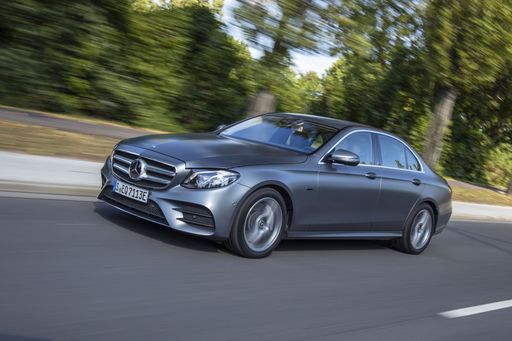
Mercedes E Class
Costs and Consumption
View detailed analysis
Engine and Performance
View detailed analysis
Dimensions and Body
View detailed analysis
Mercedes E Class
The Mercedes E‑Class is the executive saloon that balances calm refinement with a hint of sporting intent, wrapping luxury in tasteful understatement. It pampers occupants with a composed ride and intuitive tech while quietly reminding you that it’s still very much a Mercedes — authoritative, polished, and unwilling to shout for attention.
details
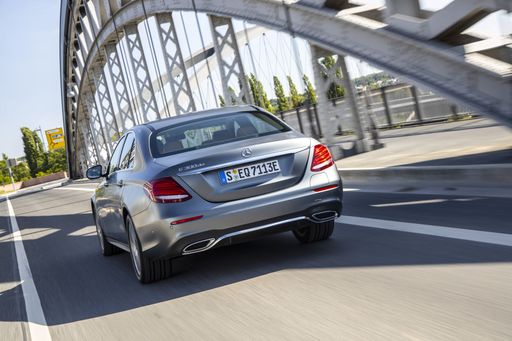
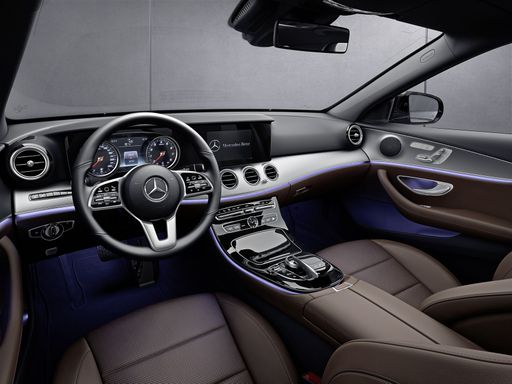
Volvo XC90
The Volvo XC90 is a serene Scandinavian SUV that mixes minimalist luxury with a composed, confidence-inspiring presence — ideal for buyers who want family practicality without sacrificing style. Inside it serves up a calm, well-crafted cabin and user-friendly tech that keeps long journeys pleasant and tantrums to a minimum, making the XC90 a smart, stylish pick for sensible drivers.
details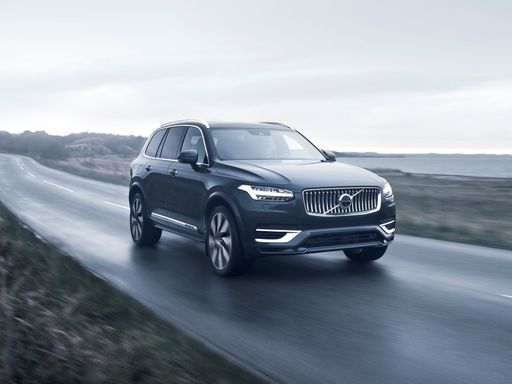
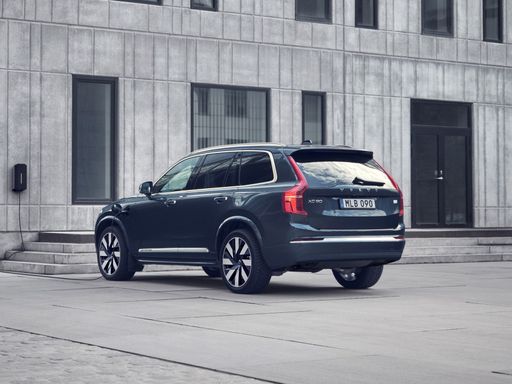

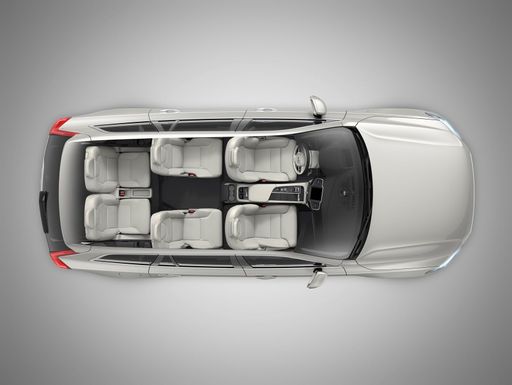
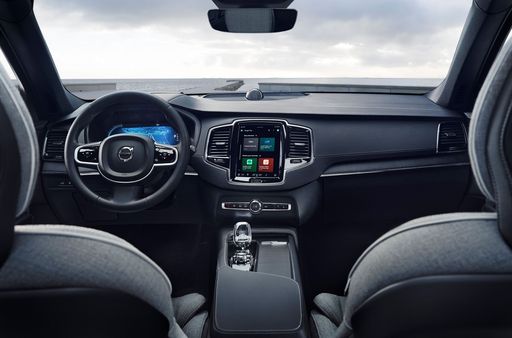
Costs and Consumption |
|
|---|---|
|
Price
50500 - 119700 £
|
Price
69800 - 84600 £
|
|
Consumption L/100km
1.5 - 7.5 L
|
Consumption L/100km
3.5 - 8.5 L
|
|
Consumption kWh/100km
-
|
Consumption kWh/100km
-
|
|
Electric Range
101 - 116 km
|
Electric Range
71 km
|
|
Battery Capacity
21.20 kWh
|
Battery Capacity
14.70 kWh
|
|
co2
39 - 172 g/km
|
co2
79 - 191 g/km
|
|
Fuel tank capacity
50 - 66 L
|
Fuel tank capacity
71 L
|
Dimensions and Body |
|
|---|---|
|
Body Type
Sedan
|
Body Type
SUV
|
|
Seats
5
|
Seats
7
|
|
Doors
4
|
Doors
5
|
|
Curb weight
1810 - 2390 kg
|
Curb weight
2080 - 2297 kg
|
|
Trunk capacity
370 - 540 L
|
Trunk capacity
262 - 302 L
|
|
Length
4949 - 4959 mm
|
Length
4953 mm
|
|
Width
1880 mm
|
Width
1923 mm
|
|
Height
1468 - 1480 mm
|
Height
1771 mm
|
|
Max trunk capacity
-
|
Max trunk capacity
1816 - 1856 L
|
|
Payload
530 - 640 kg
|
Payload
653 - 710 kg
|
Engine and Performance |
|
|---|---|
|
Engine Type
Petrol MHEV, Plugin Hybrid, Diesel MHEV
|
Engine Type
Petrol MHEV, Plugin Hybrid
|
|
Transmission
Automatic
|
Transmission
Automatic
|
|
Transmission Detail
Automatic Gearbox
|
Transmission Detail
Automatic Gearbox
|
|
Drive Type
Rear-Wheel Drive, All-Wheel Drive
|
Drive Type
All-Wheel Drive
|
|
Power HP
186 - 585 HP
|
Power HP
250 - 455 HP
|
|
Acceleration 0-100km/h
4 - 8.5 s
|
Acceleration 0-100km/h
5.4 - 7.7 s
|
|
Max Speed
222 - 250 km/h
|
Max Speed
180 km/h
|
|
Torque
320 - 750 Nm
|
Torque
360 - 709 Nm
|
|
Number of Cylinders
4 - 6
|
Number of Cylinders
4
|
|
Power kW
137 - 430 kW
|
Power kW
184 - 335 kW
|
|
Engine capacity
1993 - 2999 cm3
|
Engine capacity
1969 cm3
|
General |
|
|---|---|
|
Model Year
2024 - 2025
|
Model Year
2024 - 2025
|
|
CO2 Efficiency Class
E, F, B, D
|
CO2 Efficiency Class
G, B
|
|
Brand
Mercedes-Benz
|
Brand
Volvo
|
Is the Mercedes E Class offered with different drivetrains?
The Mercedes E Class is offered with Rear-Wheel Drive or All-Wheel Drive.




